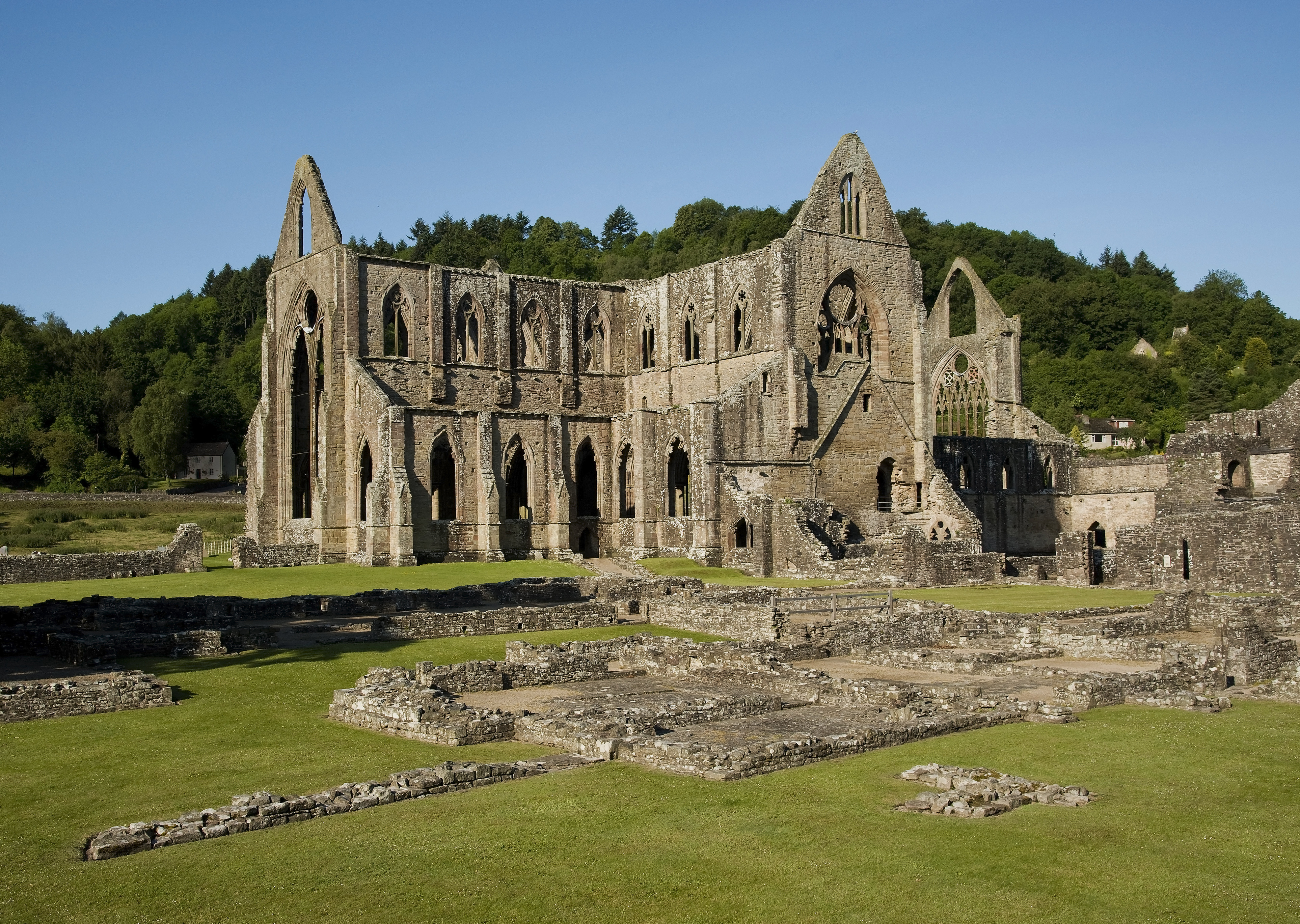It happened today - July 13, 2015
 On July 13, 1798, William Wordsworth visited Tintern Abbey. And a pretty dull postcard I just sent, you may say. Ah but nay. It inspired a poem “Lines written a few miles above Tintern Abbey” that was a landmark in English Romanticism. And the site couldn’t quit. Turner painted it more than once. Alfred, Lord Tennyson wrote a poem about it. And worse, as we shall see.
On July 13, 1798, William Wordsworth visited Tintern Abbey. And a pretty dull postcard I just sent, you may say. Ah but nay. It inspired a poem “Lines written a few miles above Tintern Abbey” that was a landmark in English Romanticism. And the site couldn’t quit. Turner painted it more than once. Alfred, Lord Tennyson wrote a poem about it. And worse, as we shall see.
Arguably helping inspire Romanticism is not a good thing. But let us try to be charitable. There is something wild and noble in a picturesque ruin and I think it is good that this sensibility has entered a culture too often bewitched by the new, streamlined and efficiency. For all its often adolescent folly, at least Romanticism did stand against the cult of progress; the poem itself speaks of the relief the author feels just imagining that landscape (though not the Abbey, which does not enter the poem) “’mid the din Of towns and cities”. No cottager can be entirely unmoved by these lines.
Nor by the thought that, with the passing of time, something marvellous and irretrievable has been lost. Including, fittingly, Tintern Abbey. It actually dates to 1131, the second Cistercian foundation in Britain and the first in Wales. They were a highly successful monastic order, prosperous and popular. Tintern itself had its ups and downs, mostly the latter from the Black Death on. But in any case it was of course “dissolved” and plundered by Henry VIII, and given to one of his cronies who let it fall apart. I do not like Henry VIII very much.
Still, by allowing it to fall into picturesque ruin Henry Somerset, 2nd Earl of Worcester, and his heirs ultimately helped inspire an artistic and philosophical movement with at least some reverence for the past, however imaginary, in an age of gathering infatuation with progress.
Indeed Romanticism itself was oddly and deeply tinged with the age of mass production including of attitudes. It’s rather sad to learn that in visiting the Abbey and being moved by its wildness Wordsworth (and his sister) were not breaking new ground but following a well-beaten tourist route, based on a popular guide Observations on the River Wye
Romantics then as now seem to be to speak more often of individuality and originality than they manifest it. Normally I wouldn’t say that entirely as a reproach; after all with seven billion people on the earth there’s bound to be some overlap in tastes and activities, and if you come up with an idea or behaviour that really is entirely new it is unlikely to be much good. But the Romantics put such self-worshipping emphasis on the unique individual that they really ought to go somewhere unusual. (I suggest a functioning, doctrinally orthodox church, purely in fun.)
I also like the fact that ultimately the British government, that most wild and unorthodox of entities, bought the property and sought to restore it to proper ruined state, including removing the ivy visitors found so romantic. Nevertheless the story continued, not necessarily in inspiring ways. For instance Beat poet Allen Ginsberg took an acid trip there on July 28, 1967, and wrote a poem I don’t recommend. Not that I’m much of an expert on poems, but a phrase like “Bard Nameless as the Vast, babble to Vastness!” rather makes one long for Wordsworth’s “beauteous forms” and “serene and blessed mood” even if his “tightly structured decasyllabic blank verse” (I quote Wikipedia here; I’m no expert on Romantic poetry and somehow sleep nights anyway) is a little hard to digest in large amounts and the poem does seem more than a little self-absorbed.
An amusing, and characteristic, twist to the story is that a Romantic like Wordsworth should ultimately have inherited money from his father that let him live comfortably, raise a large family, become Poet Laureate of the United Kingdom and die at 80 full of honours. It’s not exactly a Byronesque life trajectory. But then, Romanticism often looks better on paper than in the flesh. (Incidentally Tennyson, who succeeded Wordsworth as Poet Laureate, held the post for some 42 years and was wildly popular; among other things he wrote “The Charge of the Light Brigade”. He declared himself a rather ill-defined agnostic pandeist and, on dying old and full of honours, was buried in Westminster Abbey. Rebellion was a cushy gig back then too, it seems.)
Still, a ruined abbey by moonlight is pretty cool. He did get that part right.